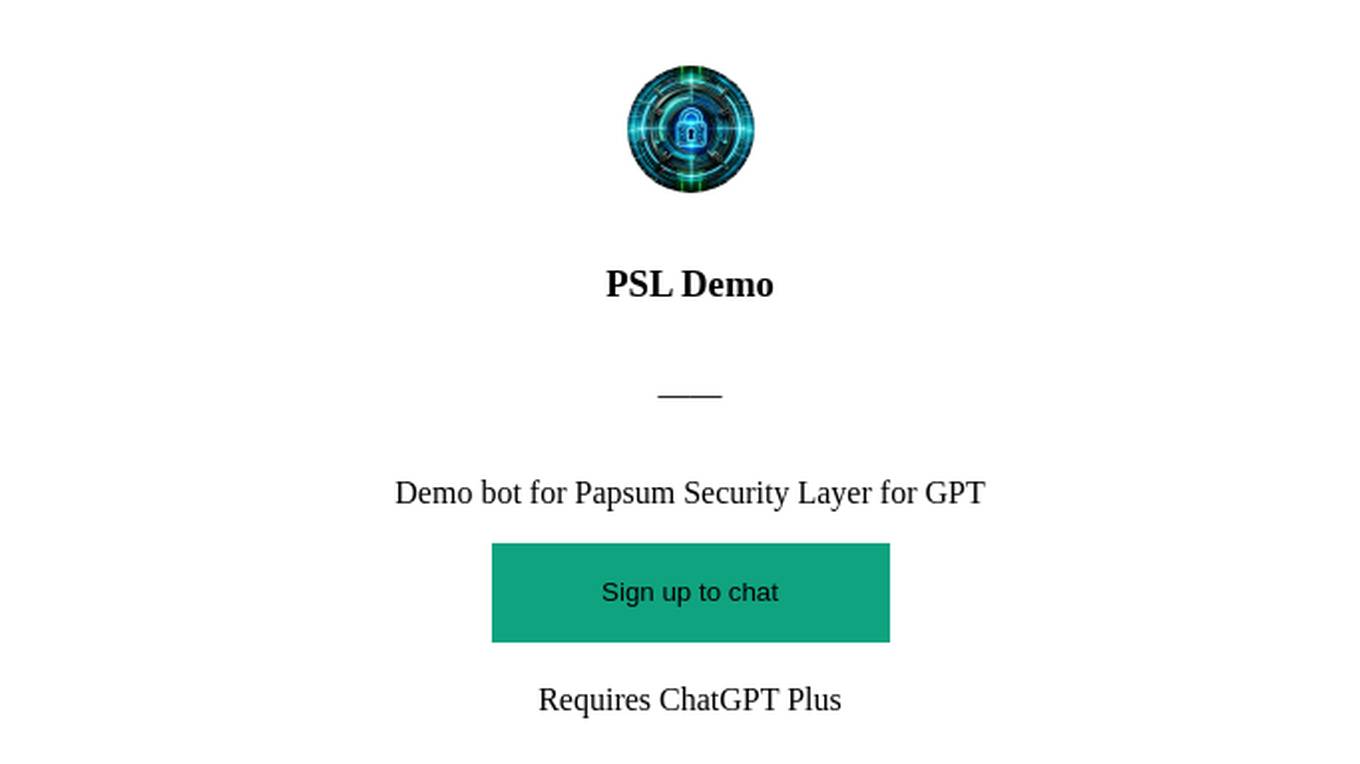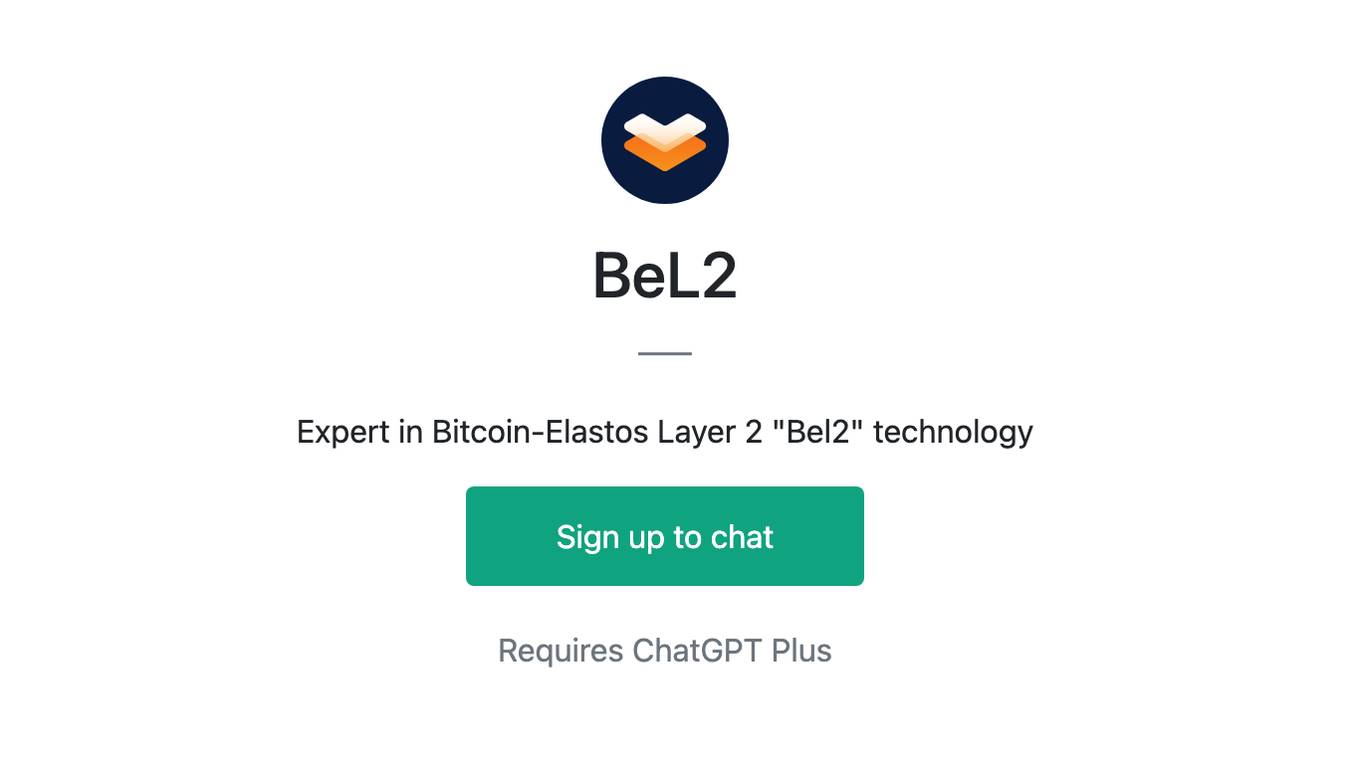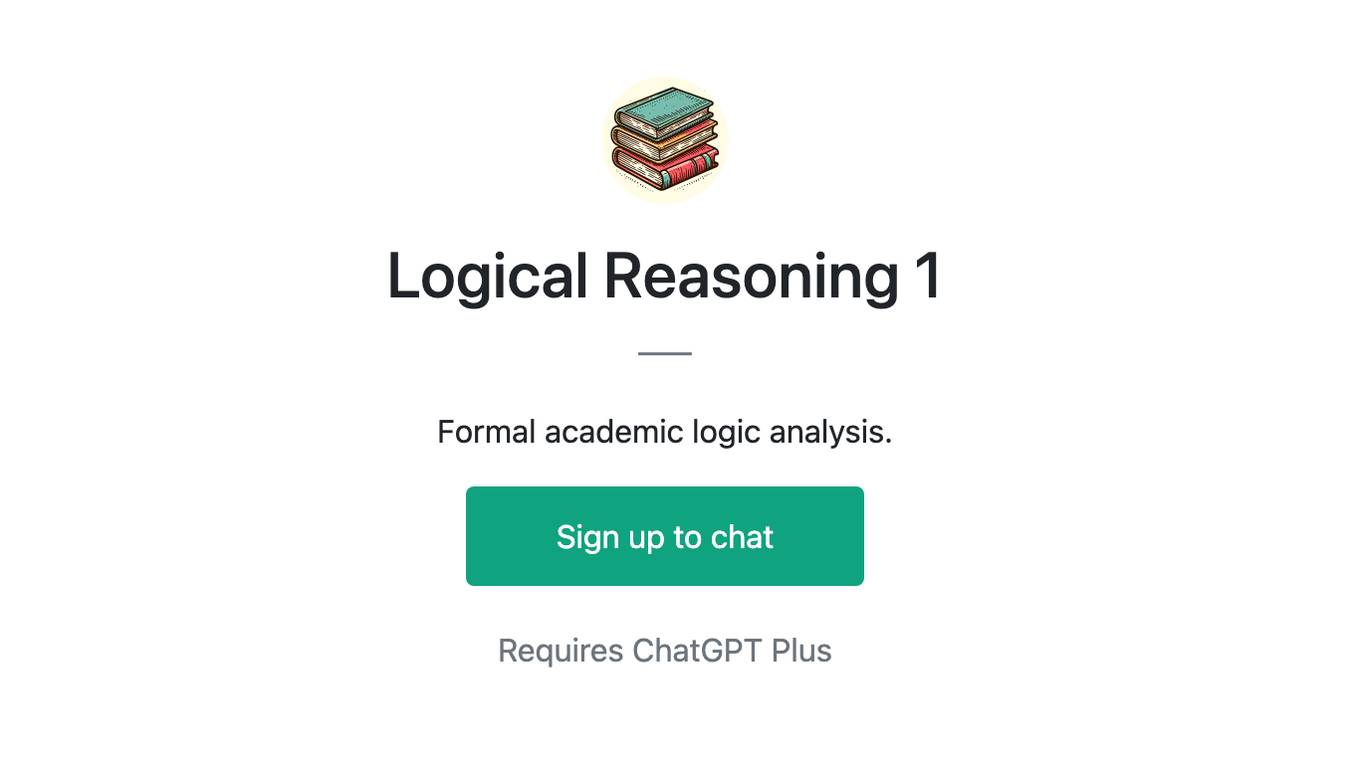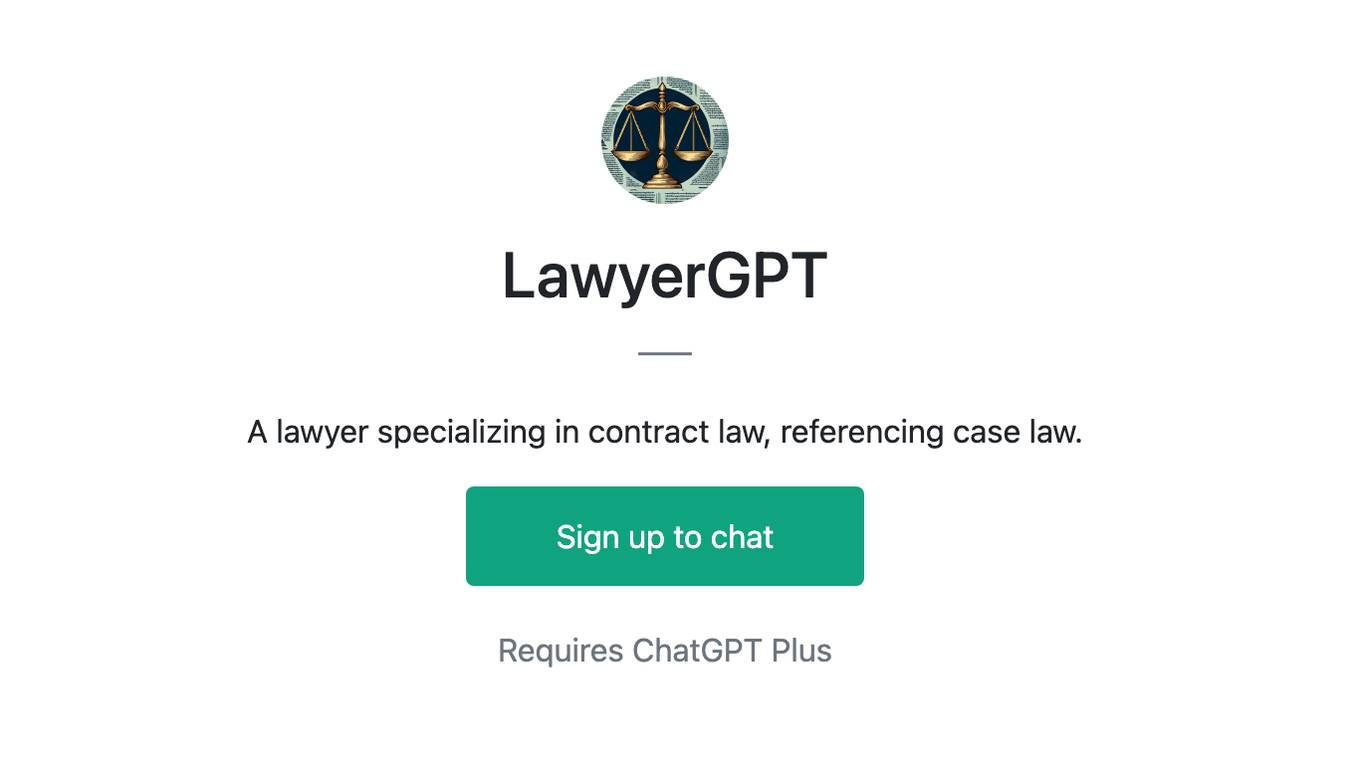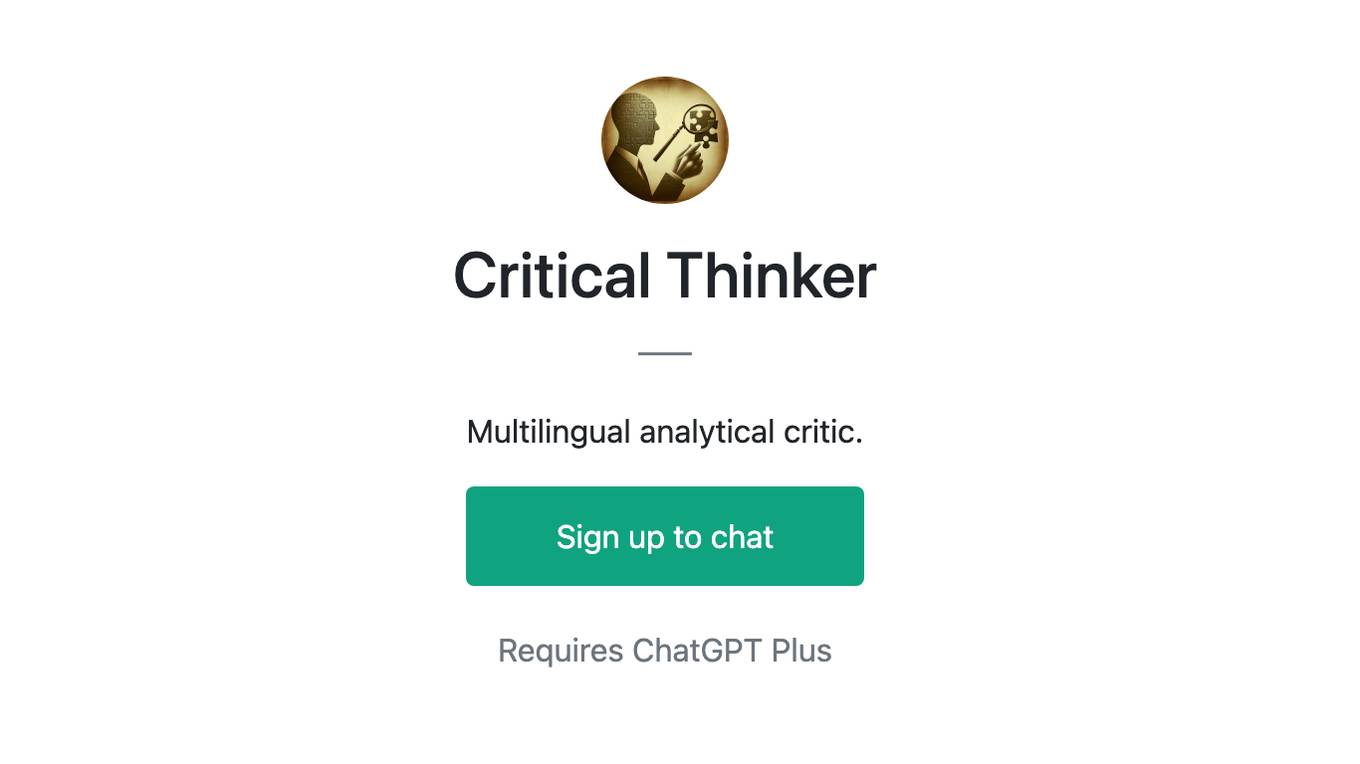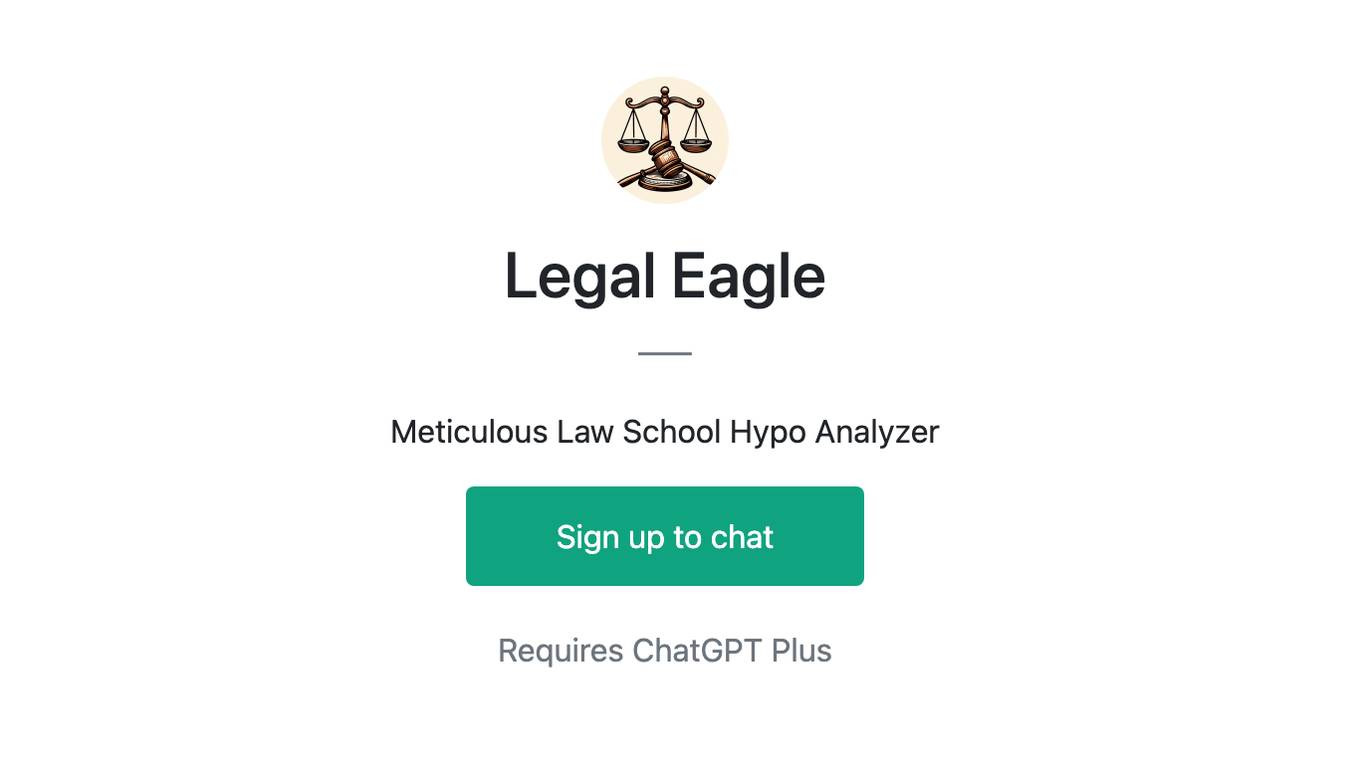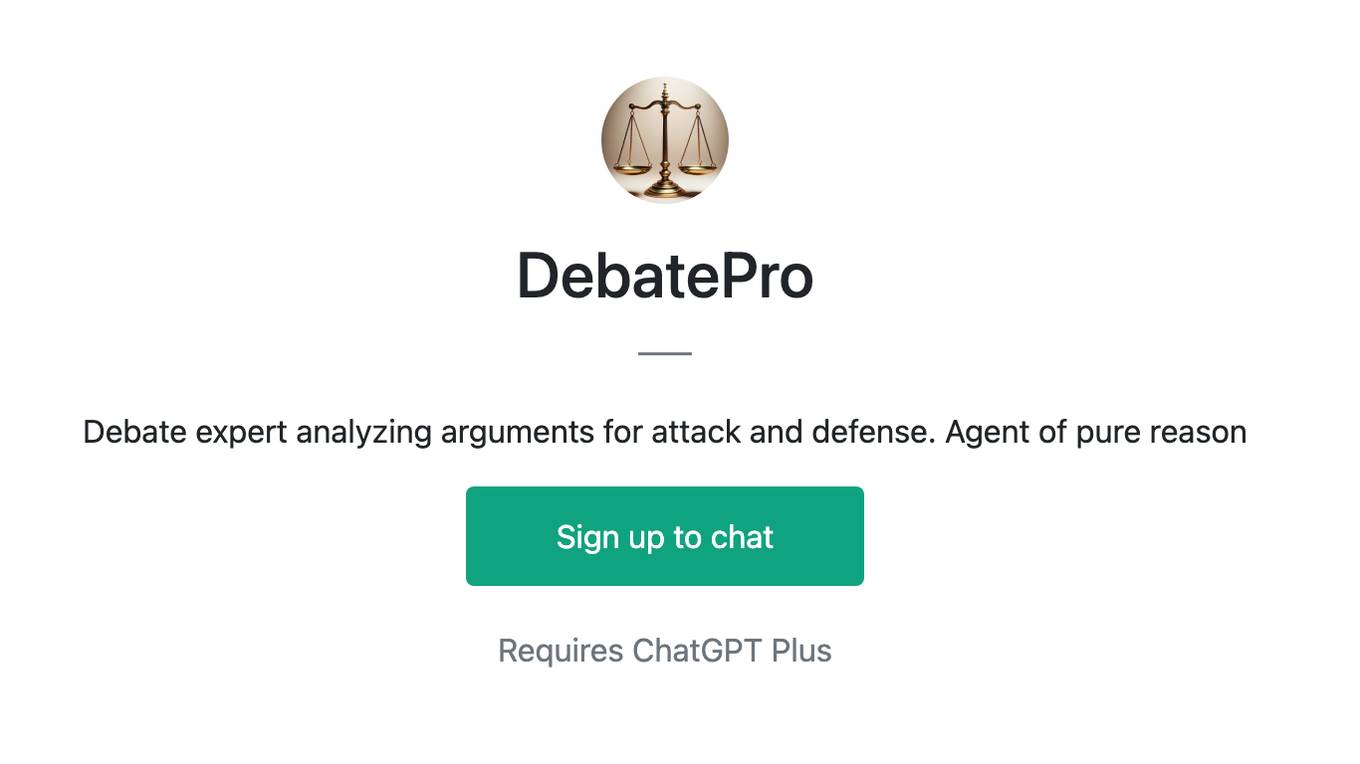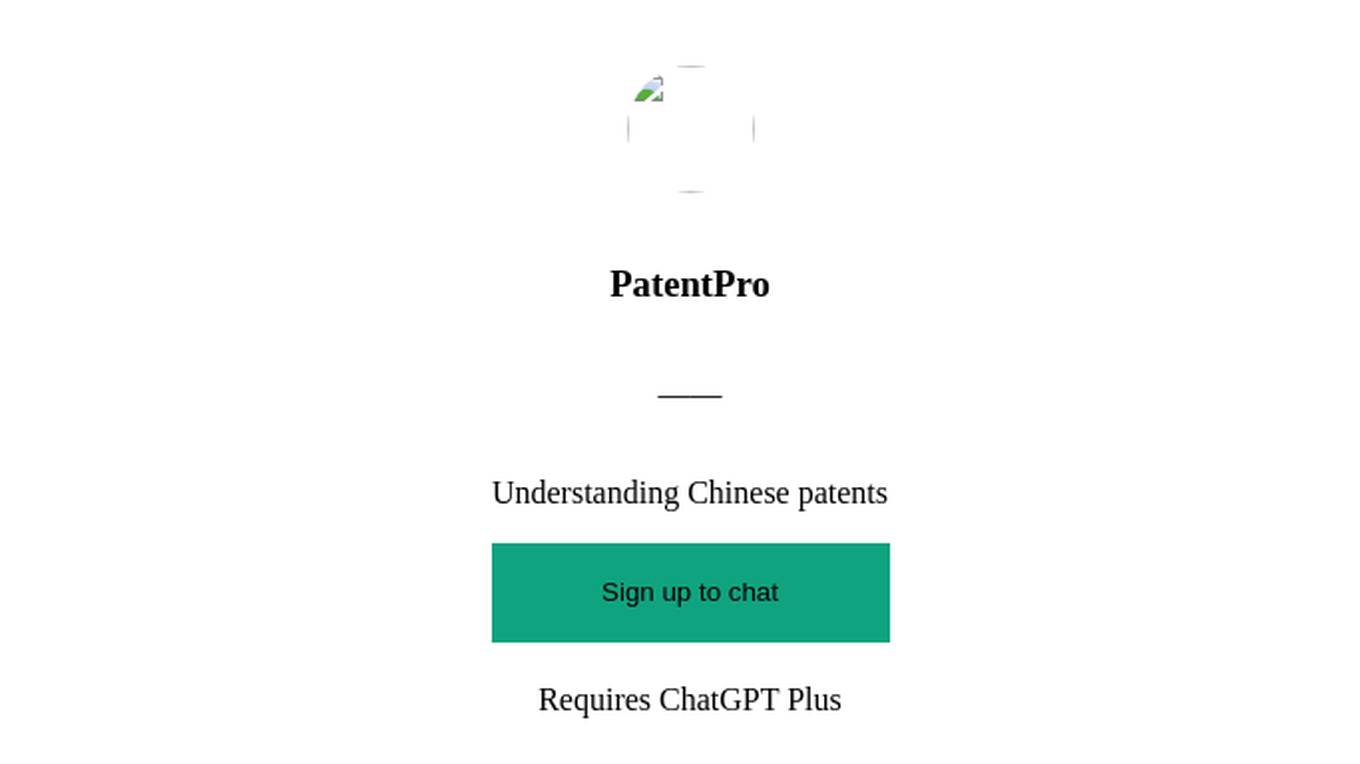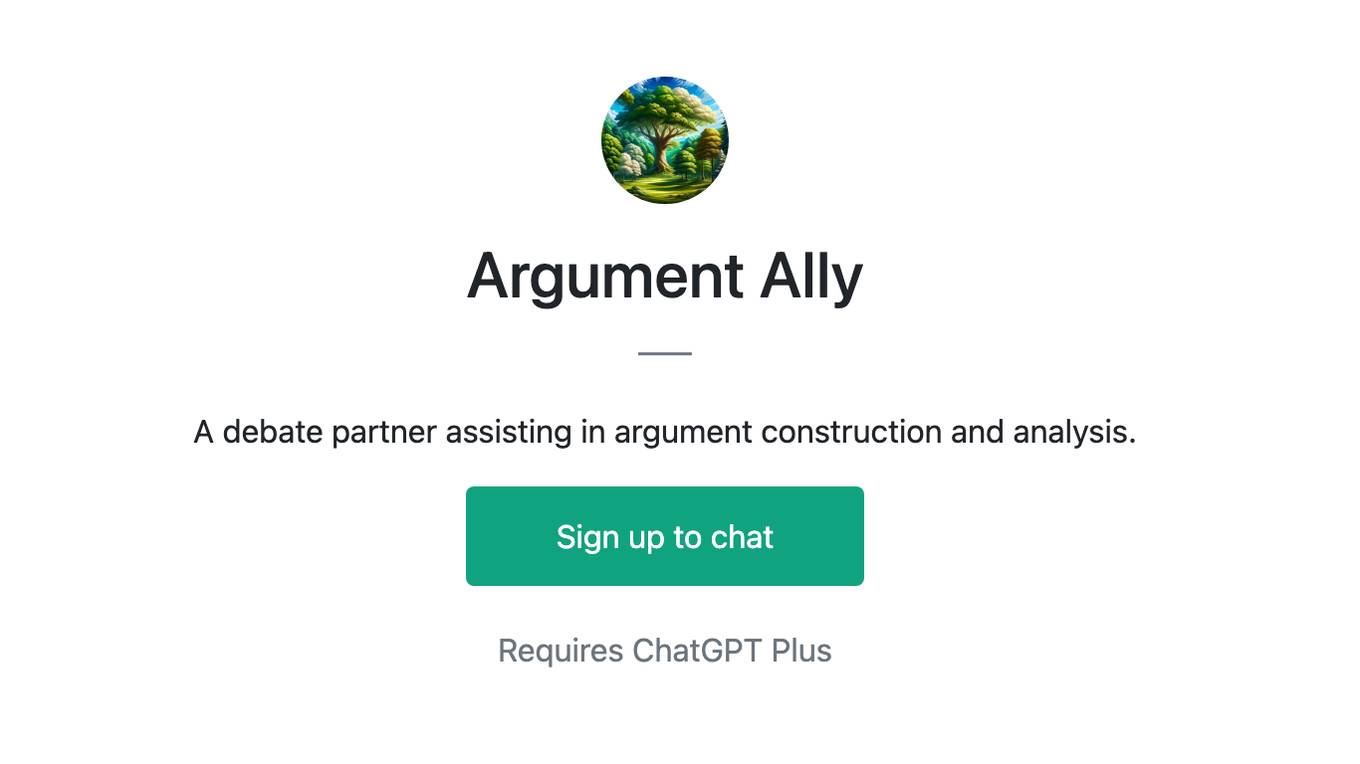Best AI tools for< Analyze Layer Activations >
20 - AI tool Sites
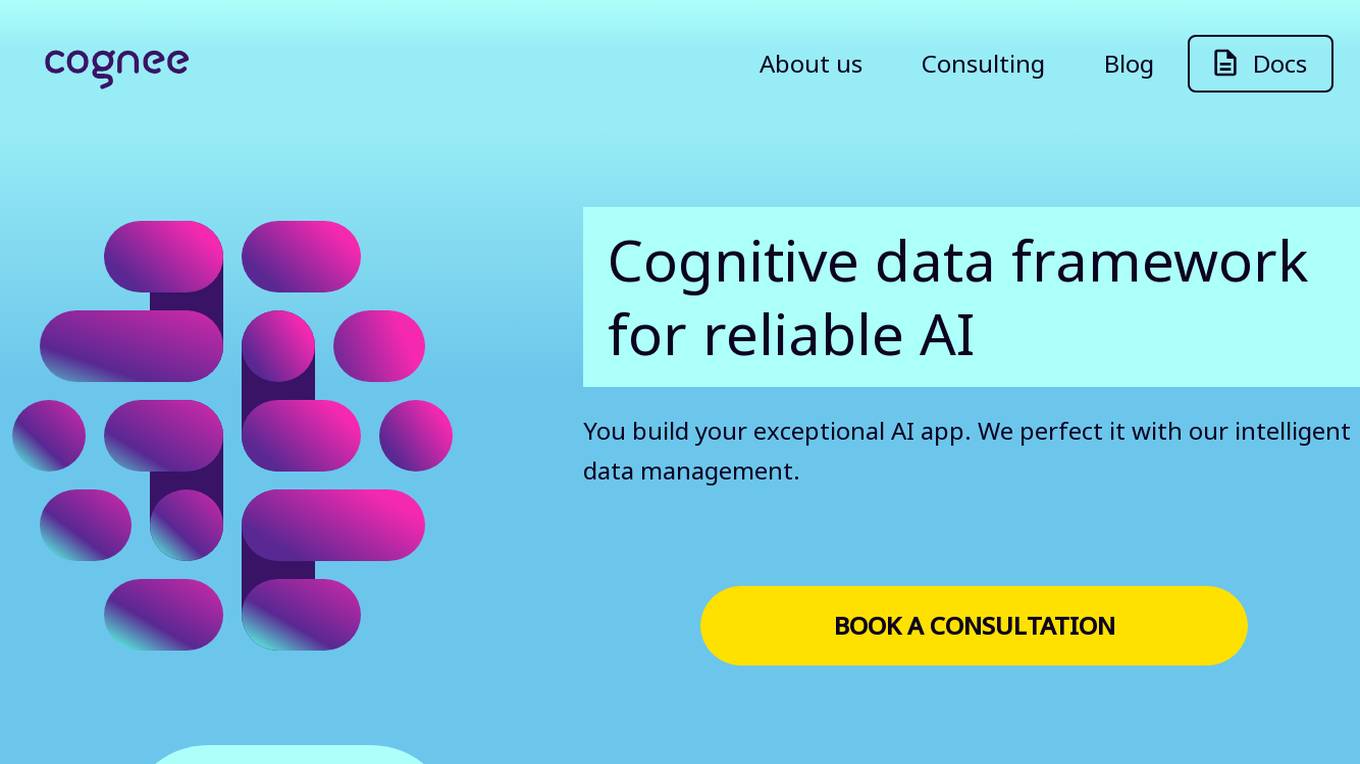
Cognee
Cognee is an AI application that helps users build deterministic AI memory by perfecting exceptional AI apps with intelligent data management. It acts as a semantic memory layer, uncovering hidden connections within data and infusing it with company-specific language and principles. Cognee offers data ingestion and enrichment services, resulting in relevant data retrievals and lower infrastructure costs. The application is suitable for various industries, including customer engagement, EduTech, company onboarding, recruitment, marketing, and tourism.
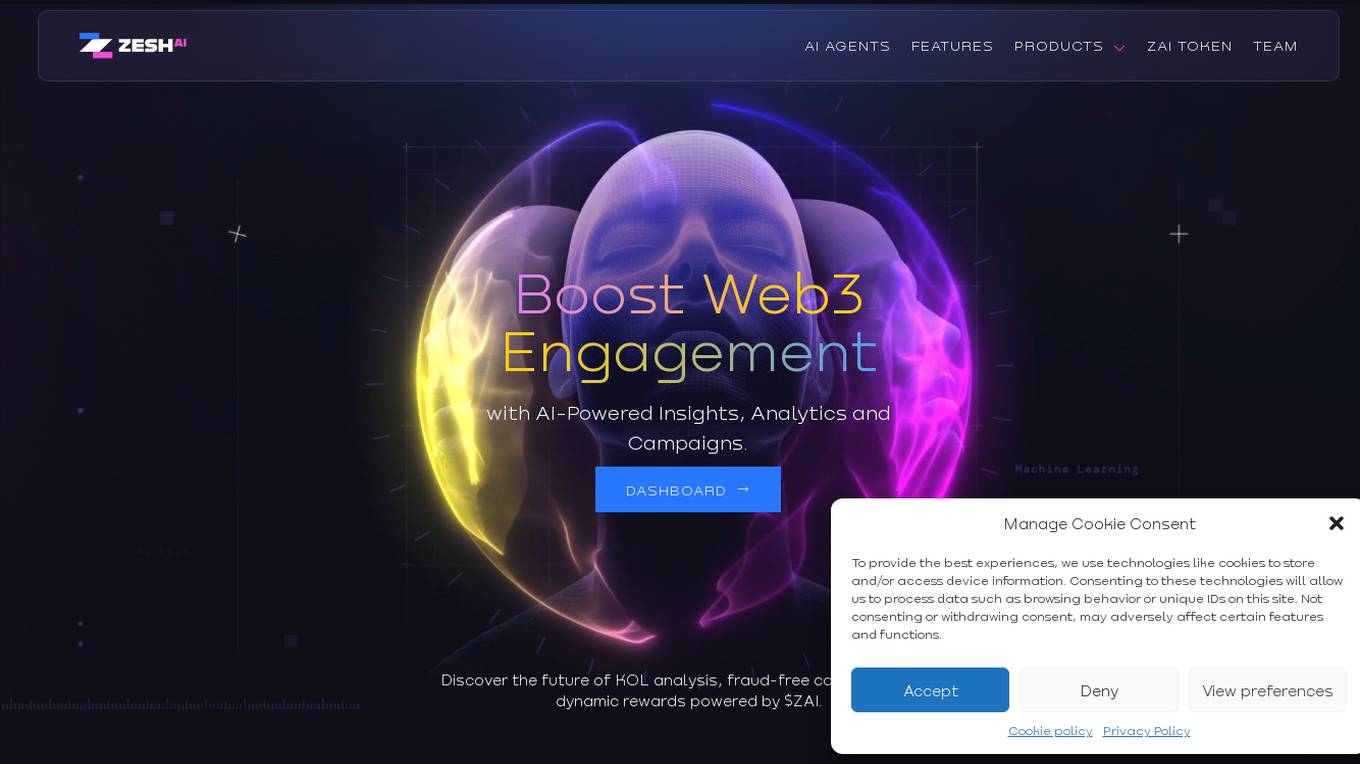
Zesh AI
Zesh AI is an advanced AI-powered ecosystem that offers a range of innovative tools and solutions for Web3 projects, community managers, data analysts, and decision-makers. It leverages AI Agents and LLMs to redefine KOL analysis, community engagement, and campaign optimization. With features like InfluenceAI for KOL discovery, EngageAI for campaign management, IDAI for fraud detection, AnalyticsAI for data analysis, and Wallet & NFT Profile for community empowerment, Zesh AI provides cutting-edge solutions for various aspects of Web3 ecosystems.
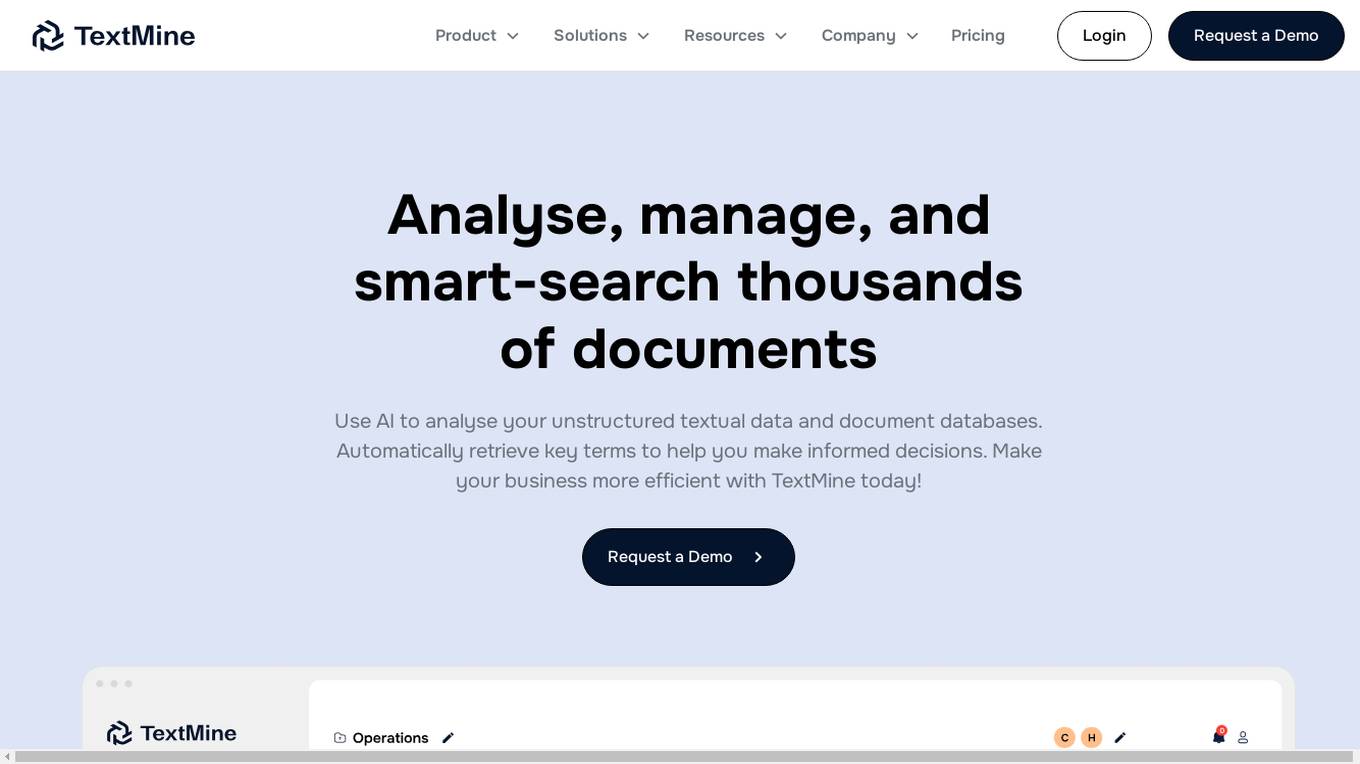
TextMine
TextMine is an AI-powered knowledge base that helps businesses analyze, manage, and search thousands of documents. It uses AI to analyze unstructured textual data and document databases, automatically retrieving key terms to help users make informed decisions. TextMine's features include a document vault for storing and managing documents, a categorization system for organizing documents, and a data extraction tool for extracting insights from documents. TextMine can help businesses save time, money, and improve efficiency by automating manual data entry and information retrieval tasks.
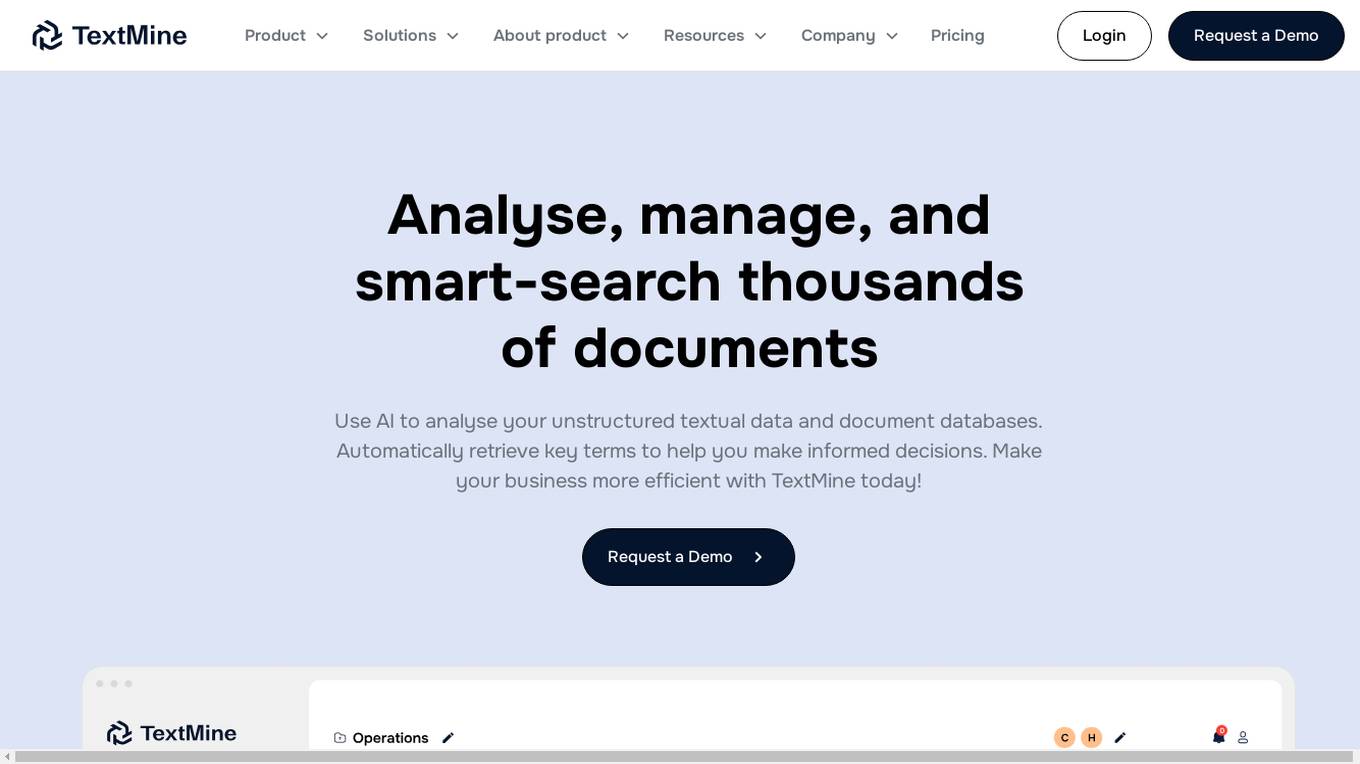
TextMine
TextMine is an AI-powered knowledge base designed for businesses to manage and analyze critical documents efficiently. It offers features such as document analysis, smart-search capabilities, automated data extraction, and structured dataset transformation. TextMine helps businesses save time and money by streamlining document management processes and enabling informed decision-making. The application caters to various industries like Technology, Legal Services, and Financial Services, providing solutions for teams in Procurement, Finance, Compliance, CIOs, and CDOs.
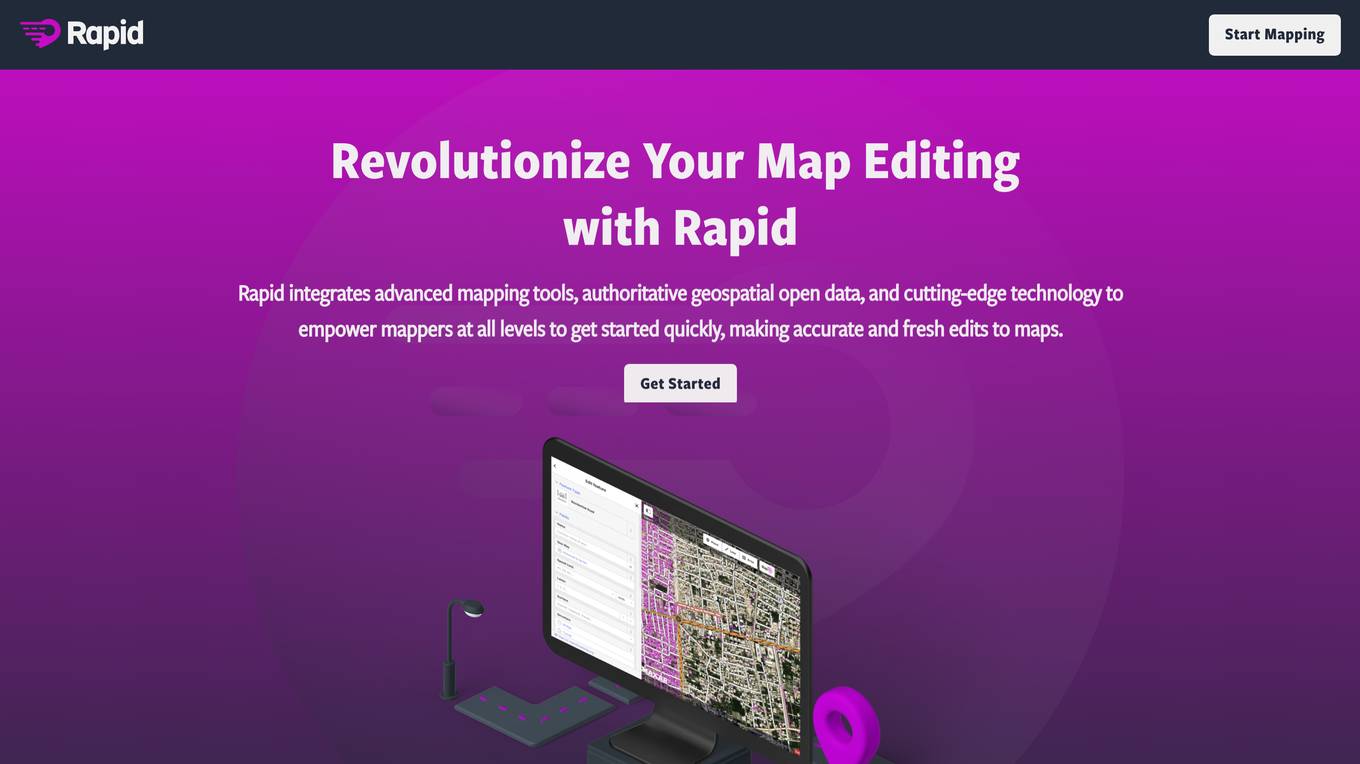
Rapid Editor
Rapid Editor is an advanced mapping tool that revolutionizes map editing by integrating cutting-edge technology and authoritative geospatial open data. It empowers OpenStreetMap mappers of all levels to quickly make accurate and fresh edits to maps. The tool saves effort by tapping into open data and AI-predicted features to draw map geometry, provides AI-analyzed satellite imagery for a high-level overview of unmapped areas, and displays open map data and machine learning detections in an intuitive user interface. Rapid Editor is designed to help map the world efficiently and is supported by a strong community of humanitarian and community groups.
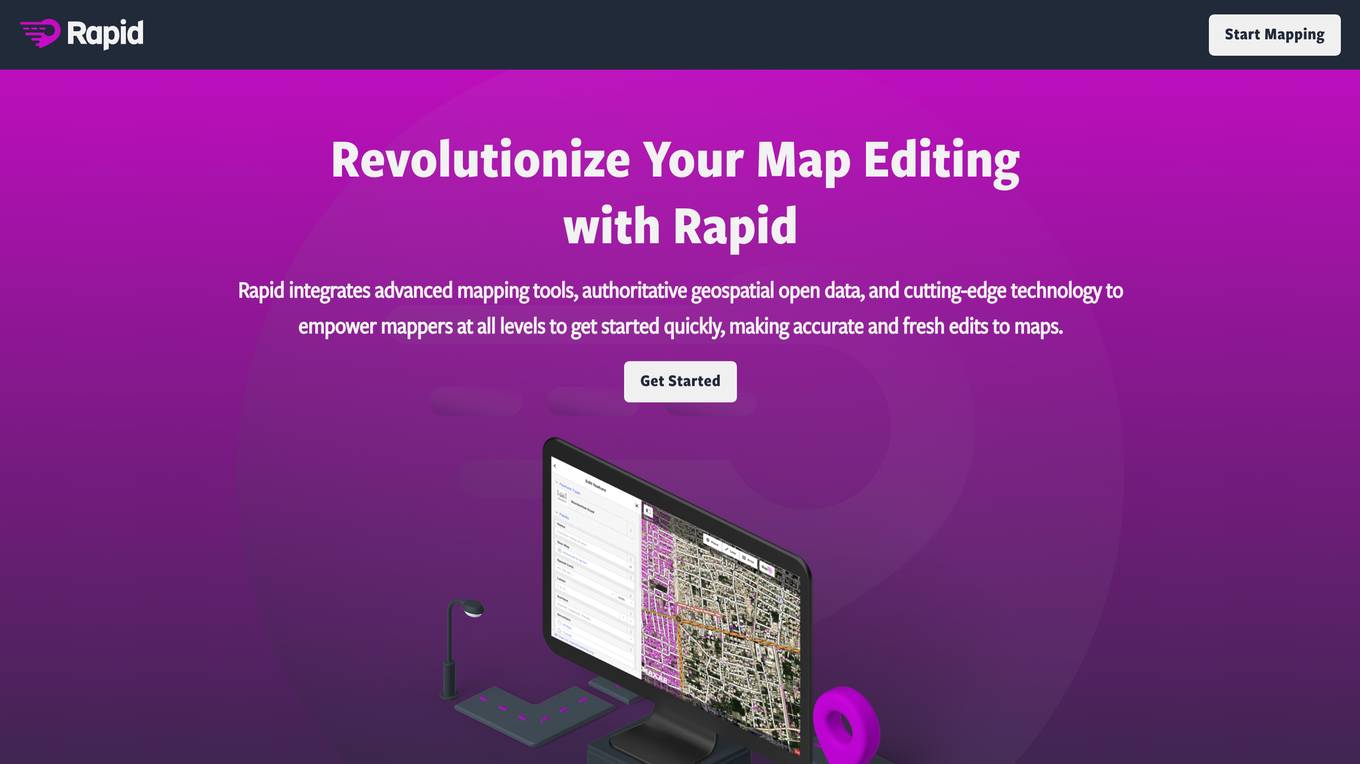
Rapid Editor
Rapid Editor is an advanced mapping tool that revolutionizes map editing by integrating cutting-edge technology and authoritative geospatial open data. It empowers OpenStreetMap mappers of all levels to make accurate and fresh edits quickly. The tool saves effort by utilizing AI to identify predicted features and provide a high-level overview of unmapped data globally. Rapid Editor's intuitive interface simplifies mapping, making it clear and simple for humanitarian and community groups to facilitate mapping projects.

Ethena Agents
Ethena Agents is an AI application designed to provide a comprehensive AI Layer for the Ethena network, offering a robust framework for modular chain economics. The platform enables users to build and launch AI models, access autonomous staking agents, and participate in the AI Agents Marketplace. With a focus on DeFAI (Decentralized Finance AI), Ethena Agents offers institutional-grade access to trillion-dollar market pools, maximizing staking APY and providing chain-agnostic asset management. Users can leverage the $ETAI token for infrastructure payments, token utility, staking rewards, and participation in decentralized governance. Additionally, the platform facilitates data/API connectivity, data aggregation, and real-time signal detection & analysis through AI-powered agents.

Supersimple
Supersimple is an AI-native data analytics platform that combines a semantic data modeling layer with the ability to answer ad hoc questions, giving users reliable, consistent data to power their day-to-day work.
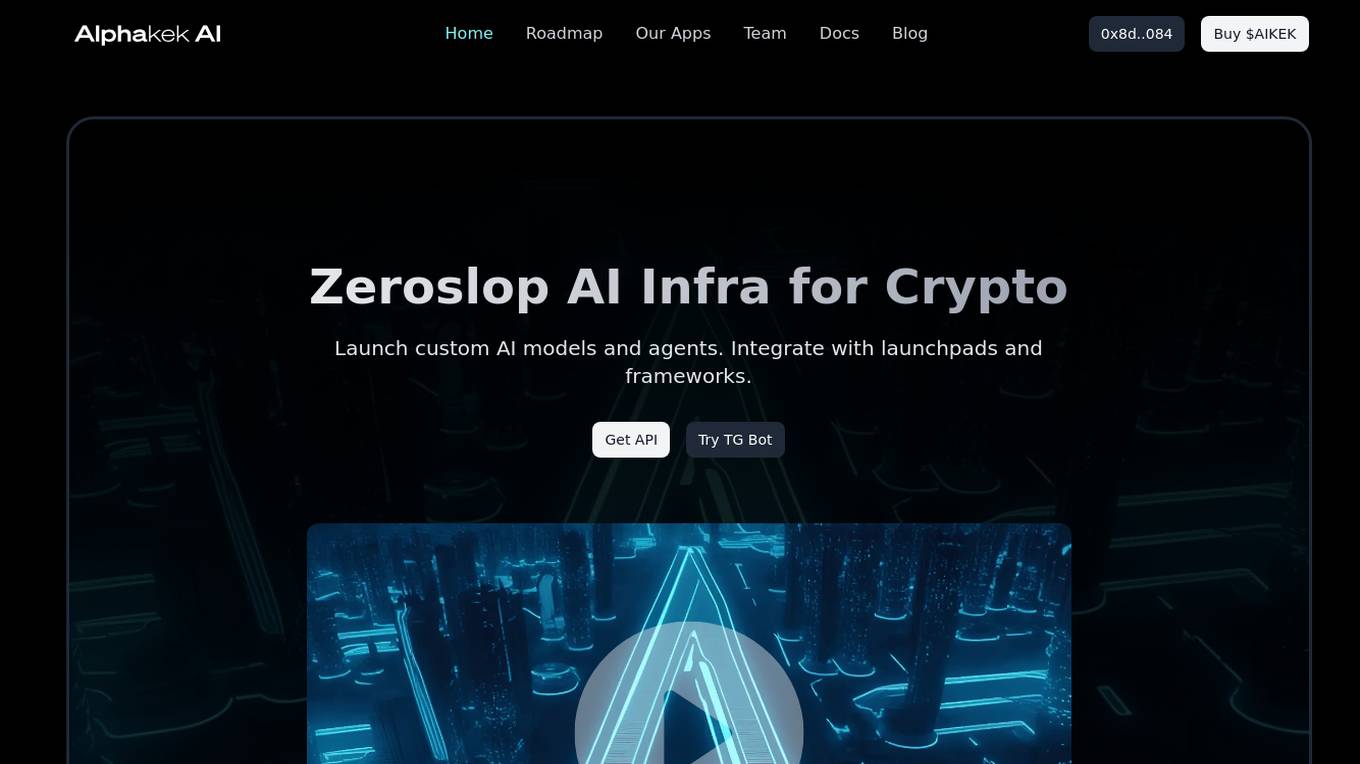
Alphakek AI
Alphakek AI is an AI lab that offers an alternative to big tech AI platforms like OpenAI and Anthropic. They have redesigned and re-engineered every layer of AI for crypto developers, traders, and creators. Alphakek provides uncensored AI models fine-tuned on crypto data, available via Telegram, Discord, Web App, and API. Their proprietary data engine, codenamed 'Fractal,' processes 2-5x more information sources simultaneously than conventional models, encompassing onchain data, mainstream financial news, niche crypto forums, and more.
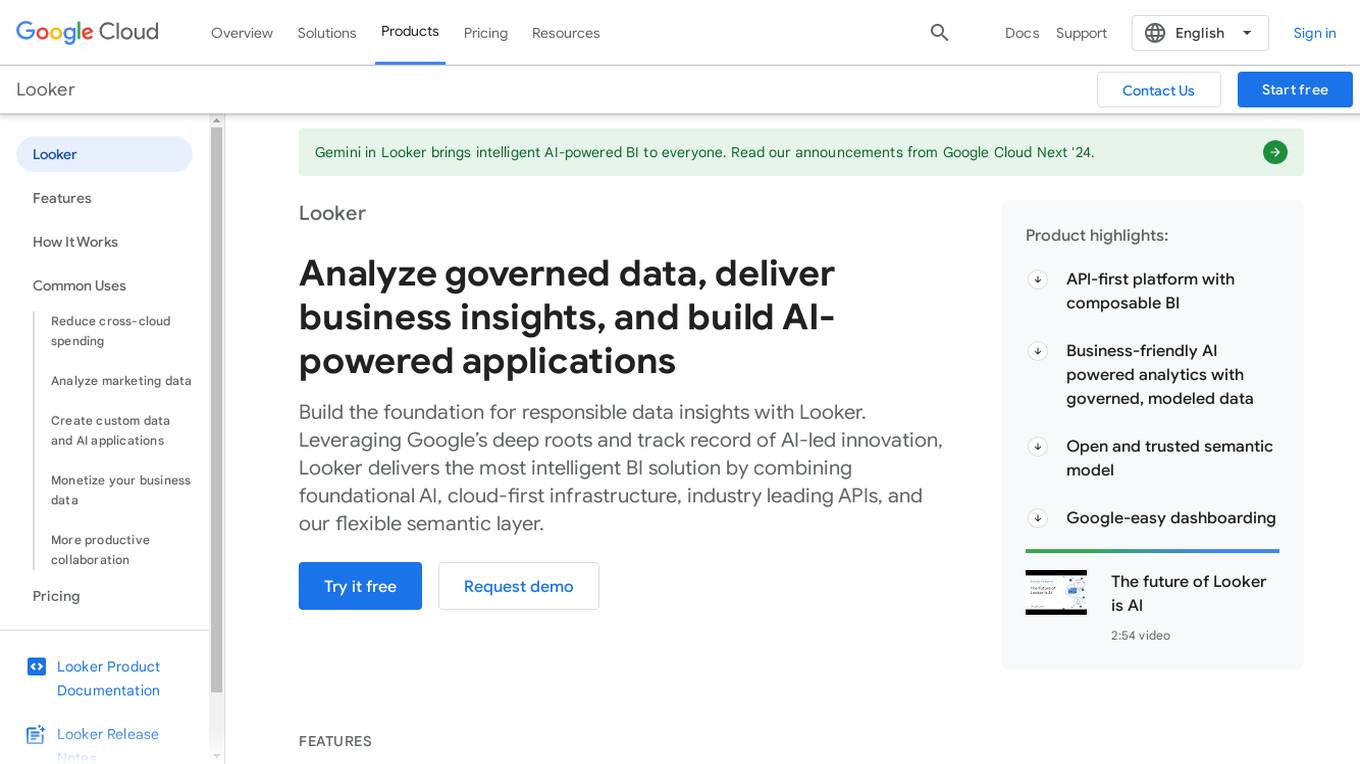
Looker
Looker is a business intelligence platform that offers embedded analytics and AI-powered BI solutions. Leveraging Google's AI-led innovation, Looker delivers intelligent BI by combining foundational AI, cloud-first infrastructure, industry-leading APIs, and a flexible semantic layer. It allows users to build custom data experiences, transform data into integrated experiences, and create deeply integrated dashboards. Looker also provides a universal semantic modeling layer for unified, trusted data sources and offers self-service analytics capabilities through Looker and Looker Studio. Additionally, Looker features Gemini, an AI-powered analytics assistant that accelerates analytical workflows and offers a collaborative and conversational user experience.
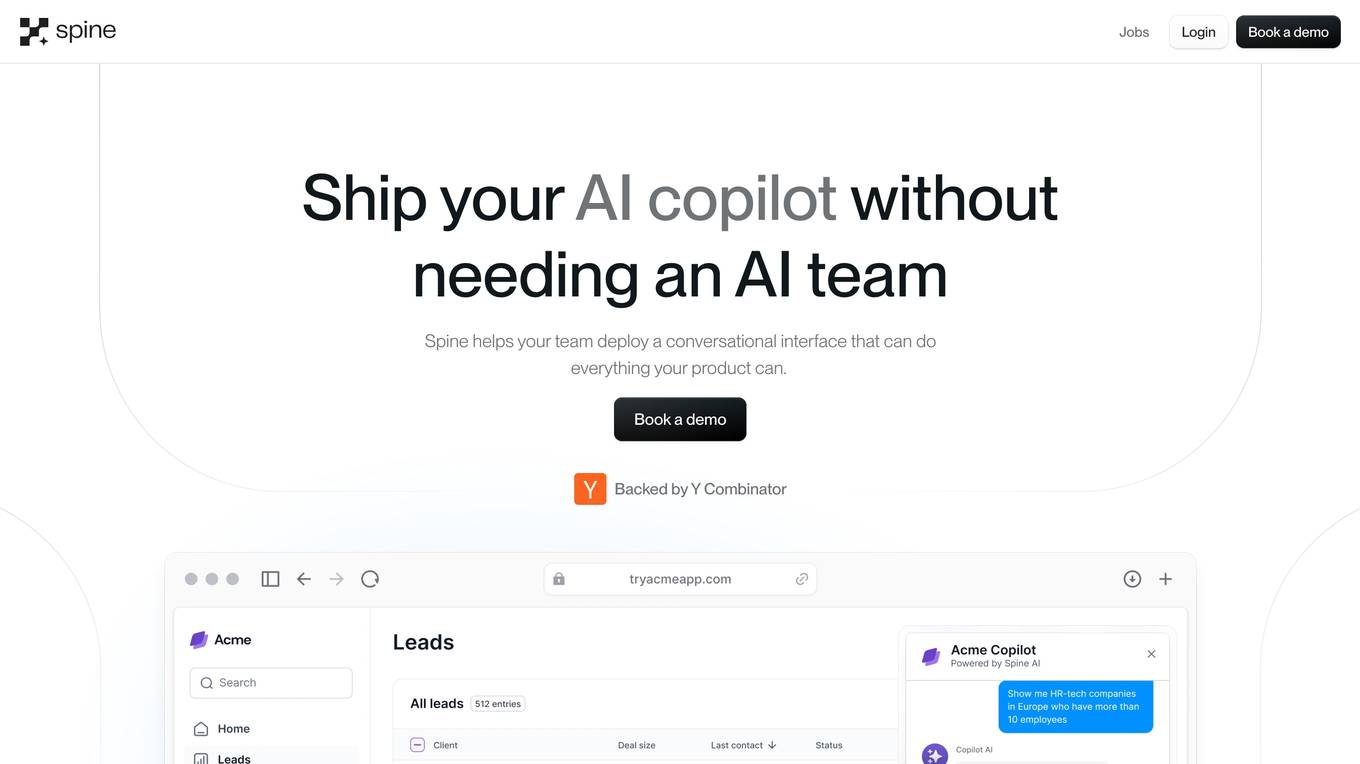
Spine AI
Spine AI is a reliable AI analyst tool that provides conversational analytics tailored to understand your business. It empowers decision-makers by offering customized insights, deep business intelligence, proactive notifications, and flexible dashboards. The tool is designed to help users make better decisions by leveraging a purpose-built Data Processing Unit (DPU) and a semantic layer for natural language interactions. With a focus on rigorous evaluation and security, Spine AI aims to deliver explainable and customizable AI solutions for businesses.

BrainAccess
BrainAccess is an AI-enabled electroencephalography (EEG) and hyperscanning solution designed for research, brain-computer interface development, neuromarketing, and beyond. It offers dry-contact EEG electrodes, wireless connectivity, and a compact form factor for portable applications. The software supports Lab Streaming Layer (LSL) protocol, enabling synchronized EEG measurements with stimulus onsets or sensor data. BrainAccess also facilitates hyperscanning, allowing synchronized brain activity measurements from multiple individuals. The user-friendly software development kit supports multiple programming languages for device control and EEG application development.

Lemony
Lemony is an on-premise generative AI solution designed for business teams, providing organization-wide trust, ownership, and transparency in AI. It offers private, fast, and compliant AI capabilities with multiple pre-loaded AI models and a software layer. Lemony enables team collaboration within professional organizations, ensuring centralized control, scalability, fixed-cost efficiency, and robust security.
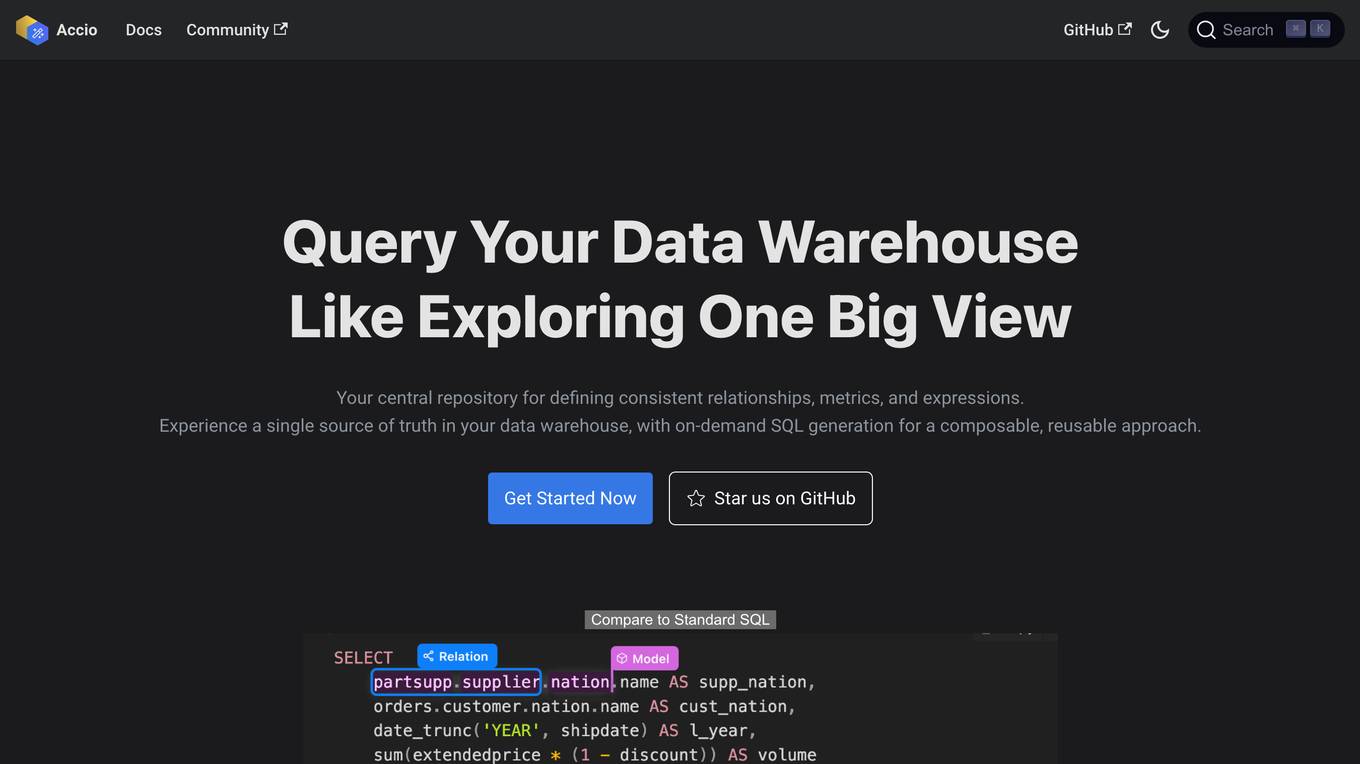
Accio
Accio is a data modeling tool that allows users to define consistent relationships, metrics, and expressions for on-the-fly computations in reports and dashboards across various BI tools. It provides a syntax similar to GraphQL that allows users to define models, relationships, and metrics in a human-readable format. Accio also offers a user-friendly interface that provides data analysts with a holistic view of the relationships between their data models, enabling them to grasp the interconnectedness and dependencies within their data ecosystem. Additionally, Accio utilizes DuckDB as a caching layer to accelerate query performance for BI tools.
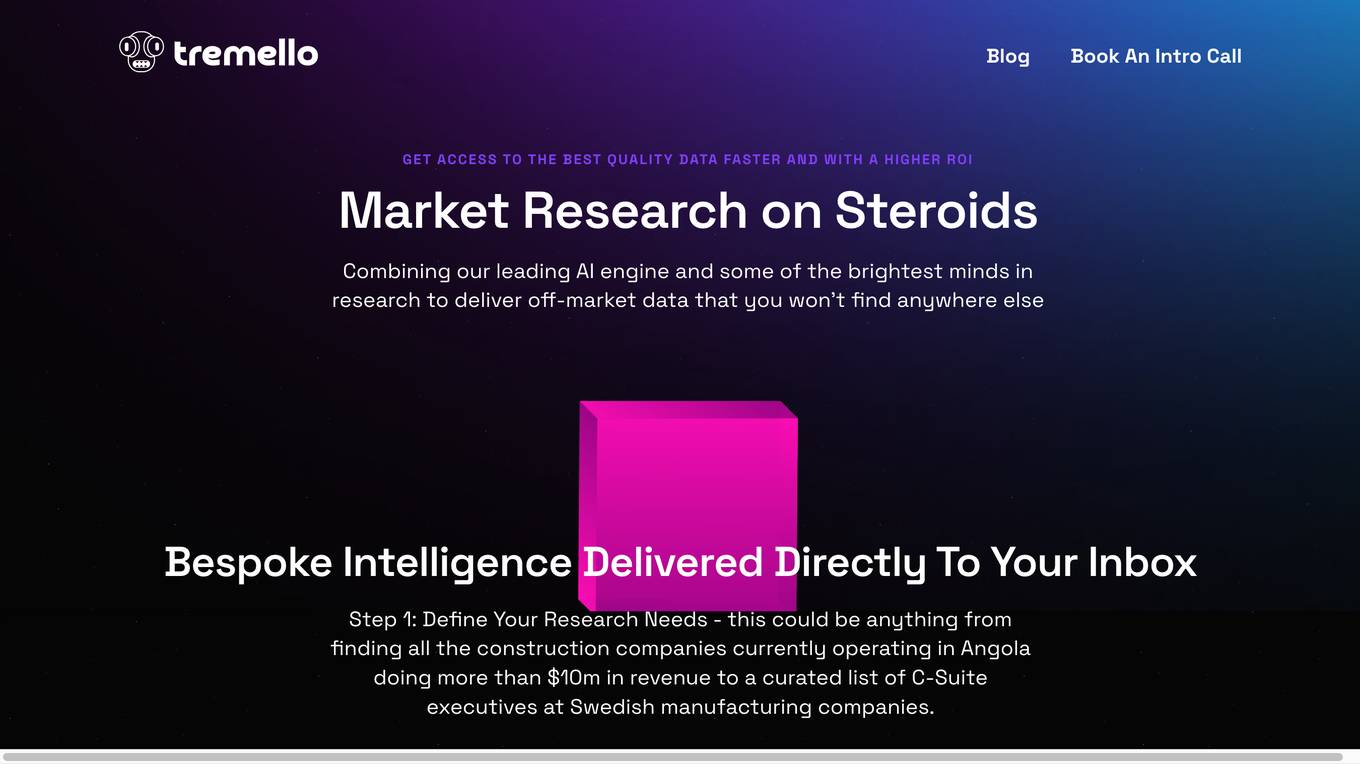
Tremello
Tremello is a market research platform that uses AI to deliver off-market data. It combines a leading AI engine with human experts to provide bespoke intelligence delivered directly to the user's inbox. Tremello's AI analyzes relationships, identifies patterns, and considers the broader context, delivering meaningful and actionable insights on top of a base human layer. It leverages a diverse range of data sources, including public and private databases, industry reports, social media archives, company websites, and government filings, ensuring a complete and comprehensive picture of the research subject.
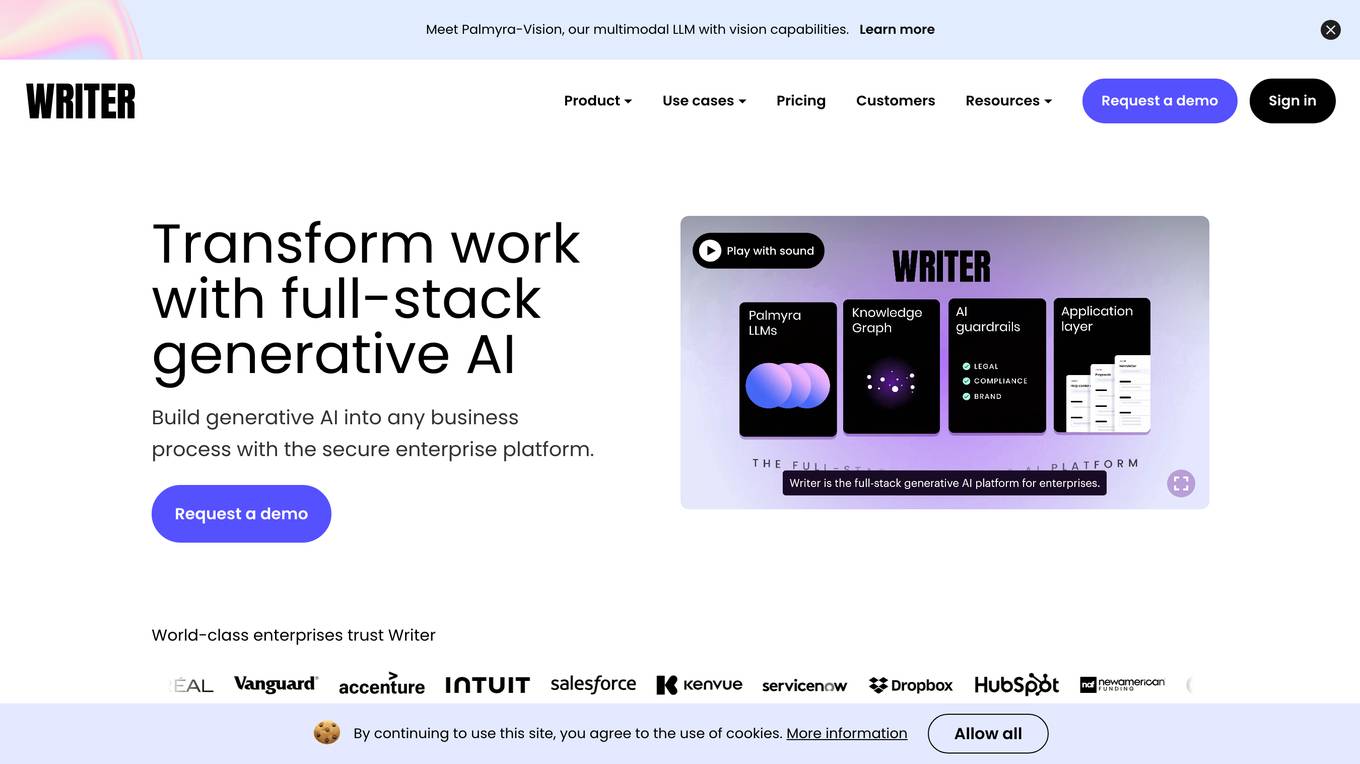
Writer
Writer is a full-stack generative AI platform that enables businesses to build and deploy custom AI applications for a wide range of use cases, including digital assistants, content generation, summarization, and data analysis. Writer's platform is designed to be accurate, scalable, and cost-effective, and it offers a variety of features to help businesses get the most out of generative AI, including: - Palmyra LLMs: Writer's family of LLMs is purpose-built for the enterprise and offers a range of capabilities, including question-answering, image analysis, and multilingual translation. - Knowledge Graph: Writer's Knowledge Graph anchors generative AI in your company data, resulting in higher accuracy and fewer hallucinations. - AI guardrails: Writer's AI guardrails help businesses enforce their regulatory, legal, inclusivity, and brand rules across all work, whether it's created by their people or AI. - Flexible application layer: Writer's flexible application layer offers a wide range of interfaces to meet your specific needs, whether you're using a prebuilt app, building a custom app, or making requests to our out-of-the-box chat app.
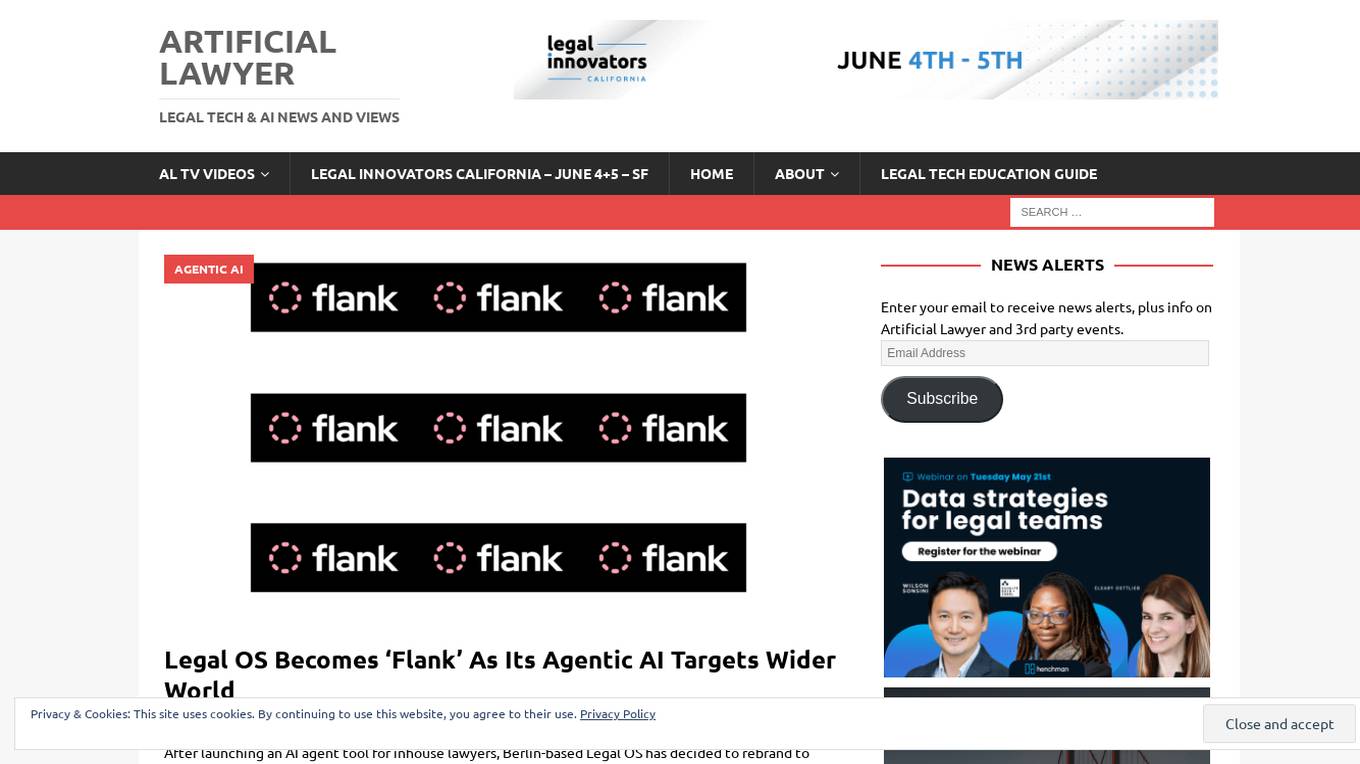
Artificial Lawyer
Artificial Lawyer is a platform dedicated to providing news and views on legal tech and artificial intelligence in the legal industry. The website covers a wide range of topics such as AI applications in legal work, legal education, eDiscovery, funding for AI assistants, and more. It aims to keep professionals updated on the latest developments and innovations in the intersection of law and technology.
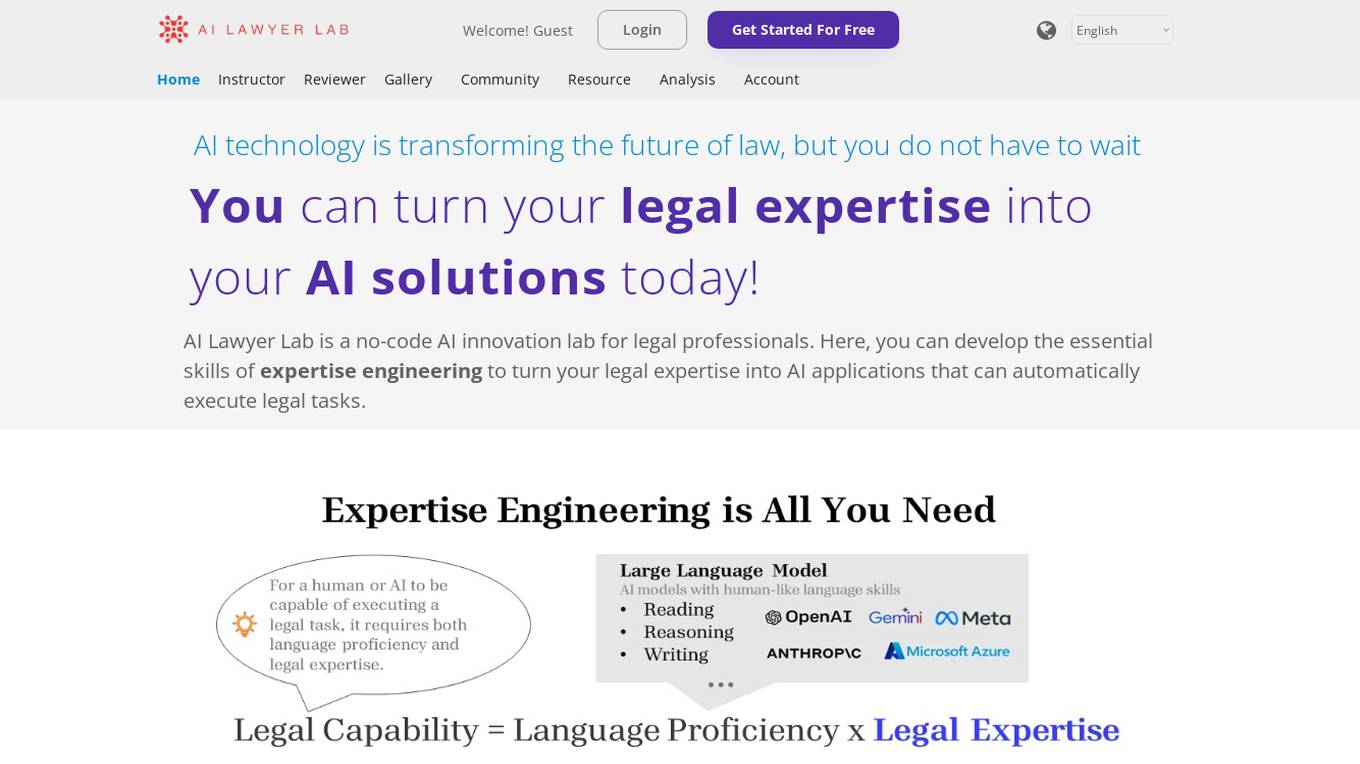
AI Lawyer Lab
AI Lawyer Lab is a platform that enables legal professionals to leverage artificial intelligence technology to enhance their legal services. By utilizing AI algorithms, users can streamline legal processes, analyze vast amounts of legal data efficiently, and generate insights to support decision-making. The platform empowers lawyers to transform their legal expertise into innovative AI solutions, ultimately improving the quality and efficiency of legal services.
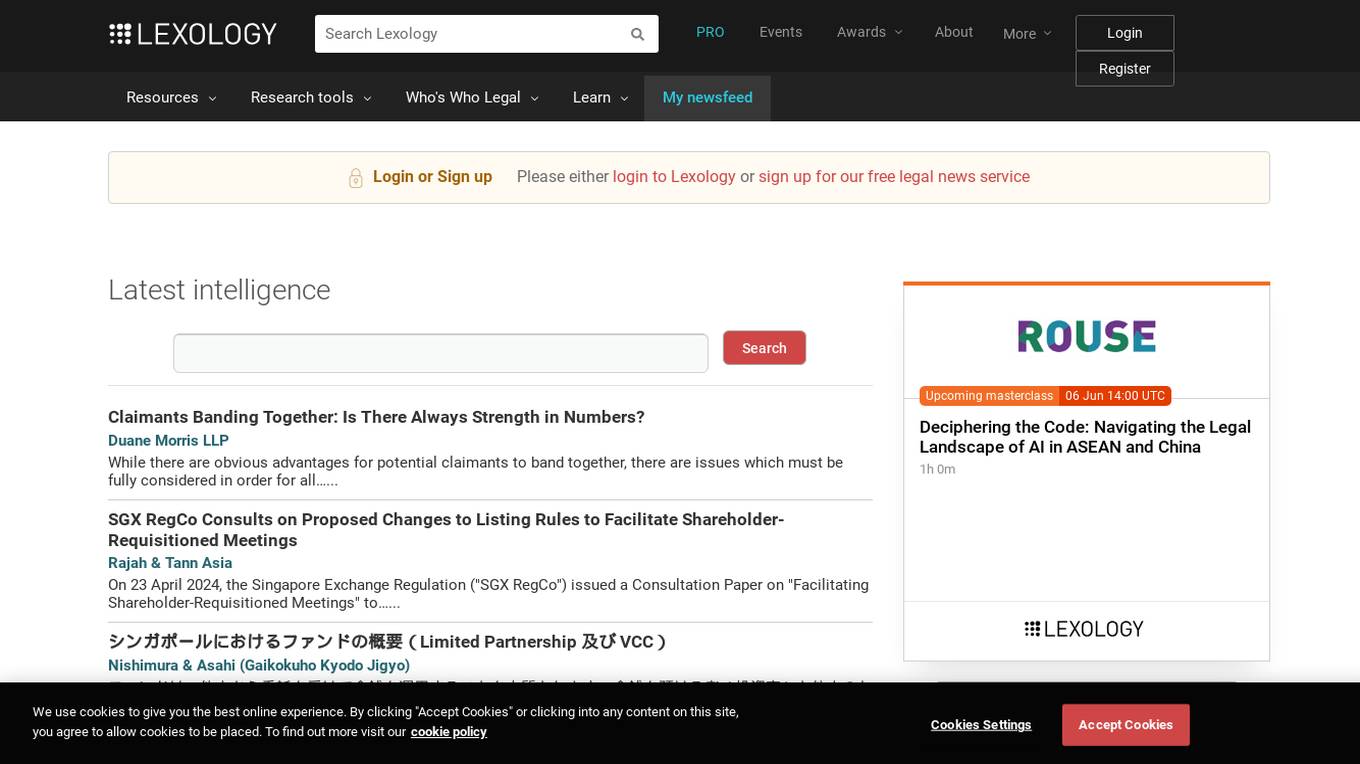
Lexology
Lexology is a next-generation search tool designed to help users find the right lawyer for their needs. It offers a wide range of resources, including practical analysis, in-depth research tools, primary sources, and expert reports. The platform aims to be a go-to resource for legal professionals and individuals seeking legal expertise.

M-Wakili
M-Wakili is an AI-powered legal assistant designed to provide instant legal advice, research, answers, and analysis on any legal topic, available 24/7. It caters to lawyers, law students, and the general public, offering accurate and reliable responses based on Kenyan law. M-Wakili aims to revolutionize the legal field by enhancing accessibility and effectiveness of legal expertise, while also aiding in the advancement of law professionals.
1 - Open Source AI Tools
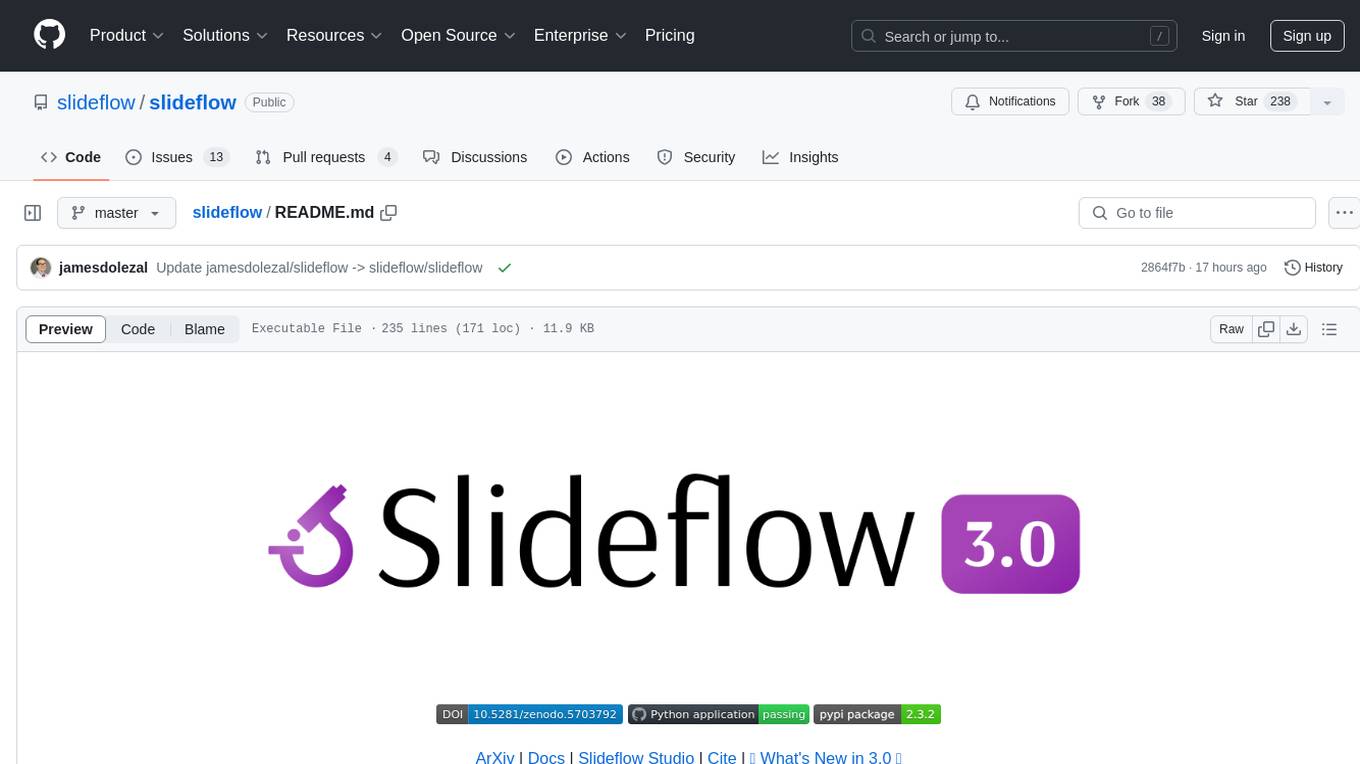
slideflow
Slideflow is a deep learning library for digital pathology, offering a user-friendly interface for model development. It is designed for medical researchers and AI enthusiasts, providing an accessible platform for developing state-of-the-art pathology models. Slideflow offers customizable training pipelines, robust slide processing and stain normalization toolkit, support for weakly-supervised or strongly-supervised labels, built-in foundation models, multiple-instance learning, self-supervised learning, generative adversarial networks, explainability tools, layer activation analysis tools, uncertainty quantification, interactive user interface for model deployment, and more. It supports both PyTorch and Tensorflow, with optional support for Libvips for slide reading. Slideflow can be installed via pip, Docker container, or from source, and includes non-commercial add-ons for additional tools and pretrained models. It allows users to create projects, extract tiles from slides, train models, and provides evaluation tools like heatmaps and mosaic maps.
20 - OpenAI Gpts

Fragrance Creator and Connoisseur GPT
I am a GPT specialized in providing bespoke recommendations for colognes and perfumes. My expertise extends to crafting unique fragrance creations, tailored to align with your individual preferences.
Data Protection Assistant
Expert in data protection laws, ready to analyze documents and answer related queries.
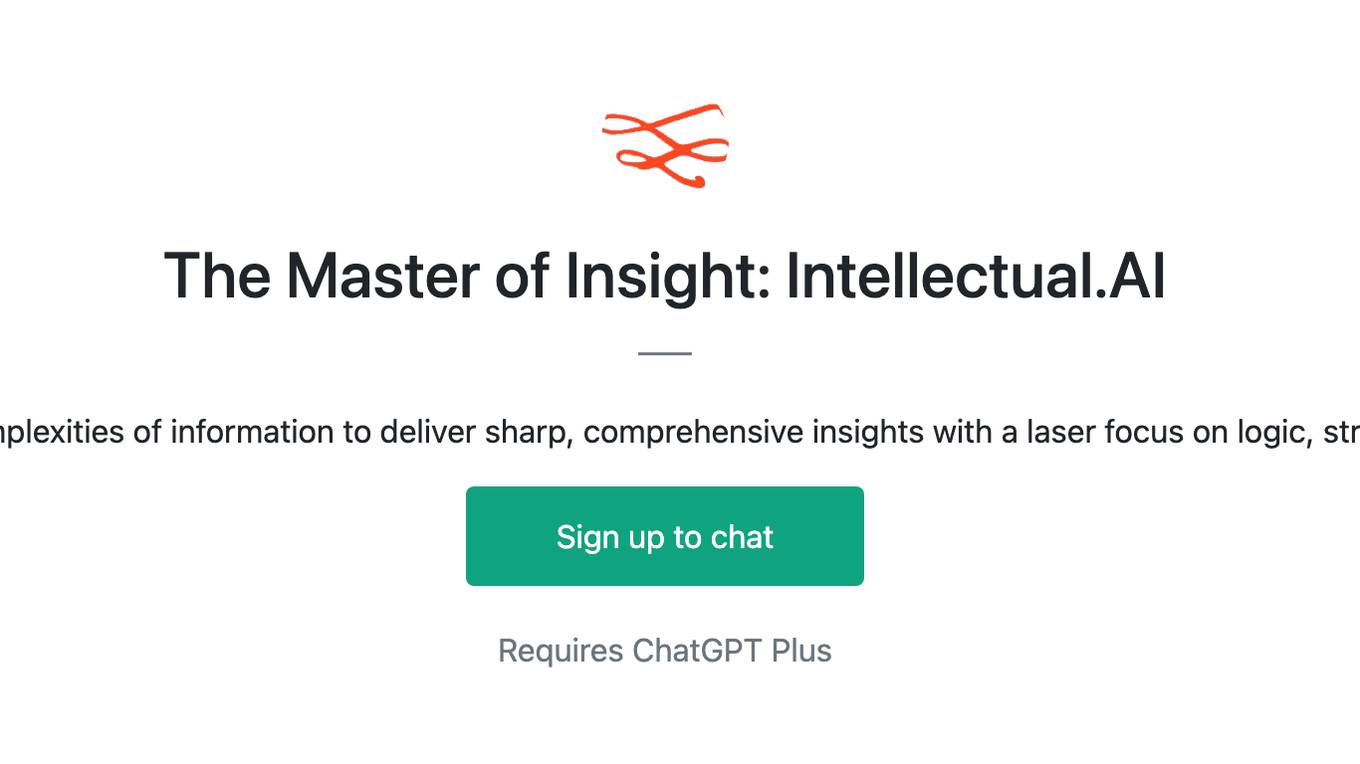
The Master of Insight: Intellectual.AI
Intellectual.AI slices through the complexities of information to deliver sharp, comprehensive insights with a laser focus on logic, structure, and cross-domain analysis
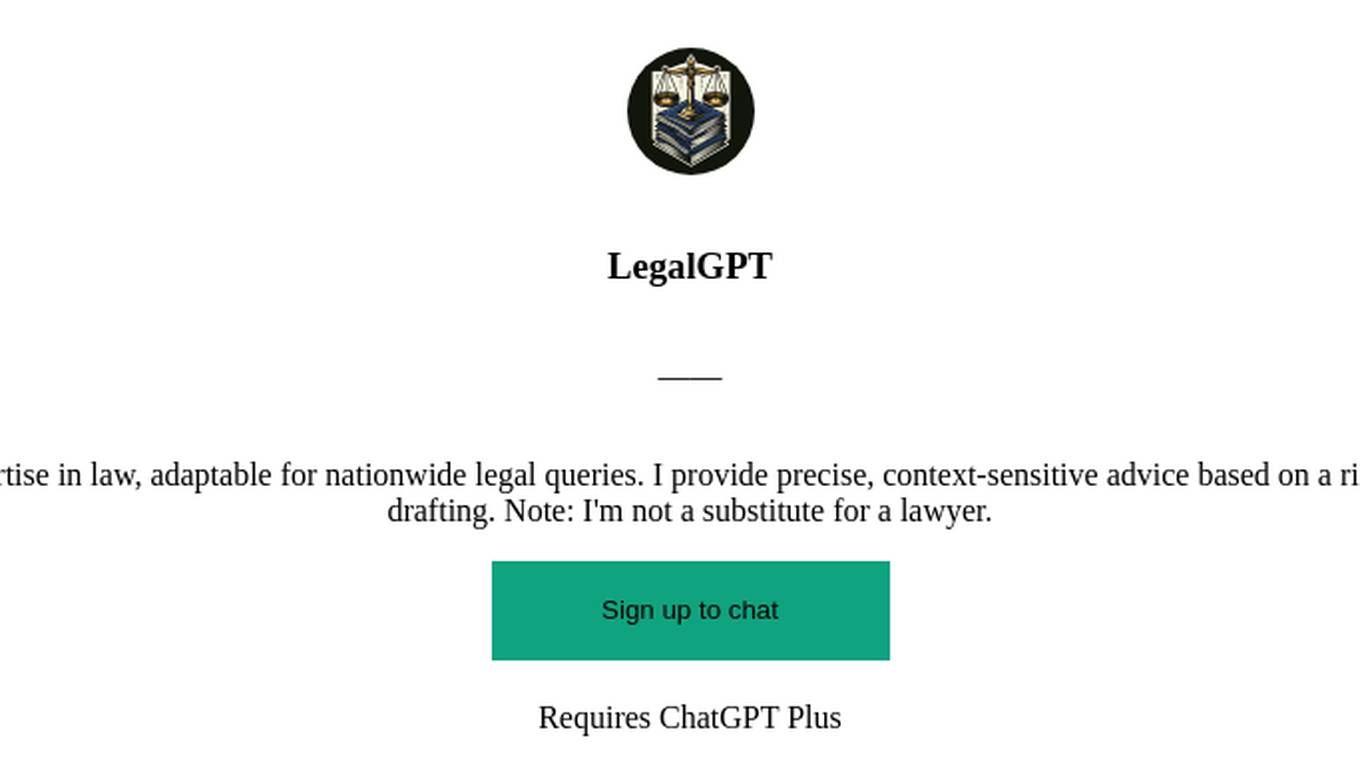
LegalGPT
As LegalGPT, I'm an AI legal assistant with expertise in law, adaptable for nationwide legal queries. I provide precise, context-sensitive advice based on a rich knowledge source, aiding in legal reasoning and drafting. Note: I'm not a substitute for a lawyer.

Litigation Advisor
Advises on litigation strategies to protect the organization's legal rights.
Debate Prep Pro
Case Analysis, Cross-X Assistance, Contradiction Identifier, and Counter-Argument Generator

Tax Policy and Legislation Advisor
Informs tax strategies by analyzing and interpreting tax laws.
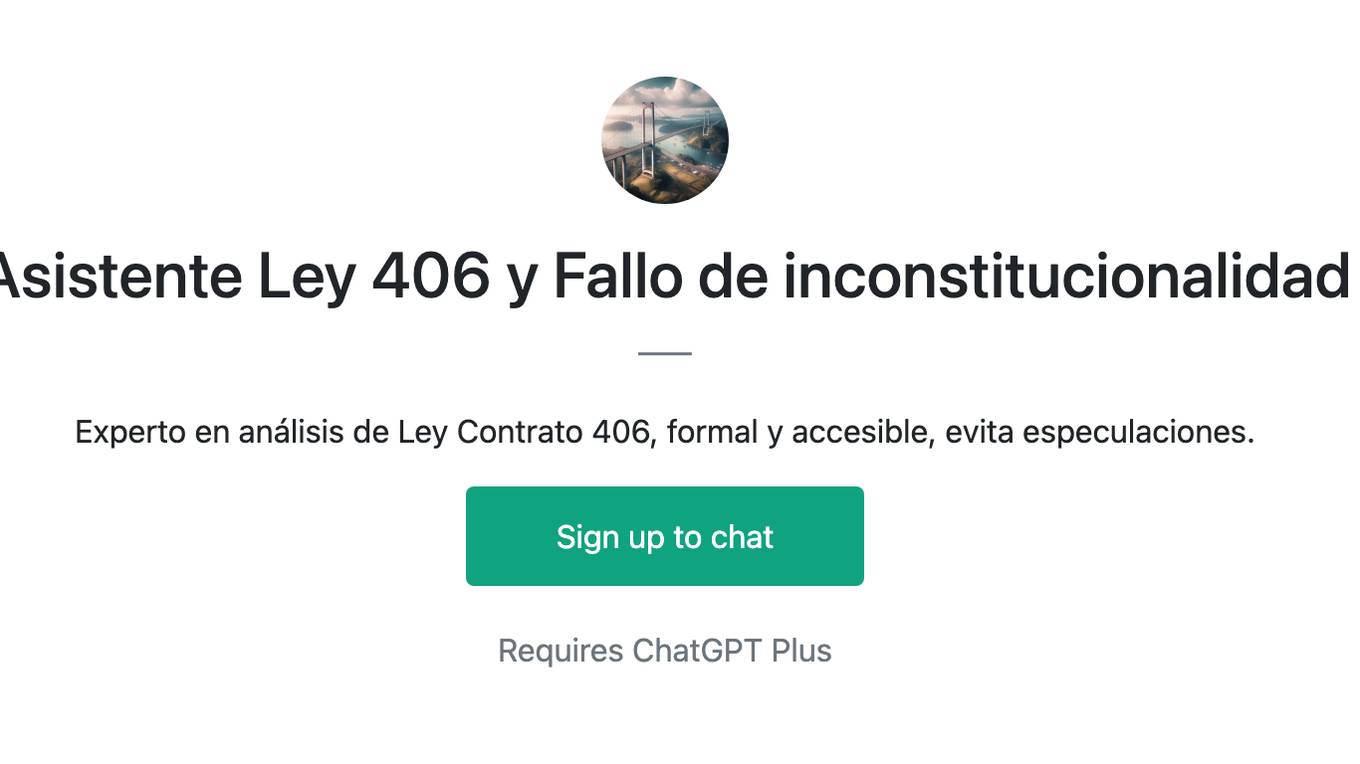
Asistente Ley 406 y Fallo de inconstitucionalidad
Experto en análisis de Ley Contrato 406, formal y accesible, evita especulaciones.
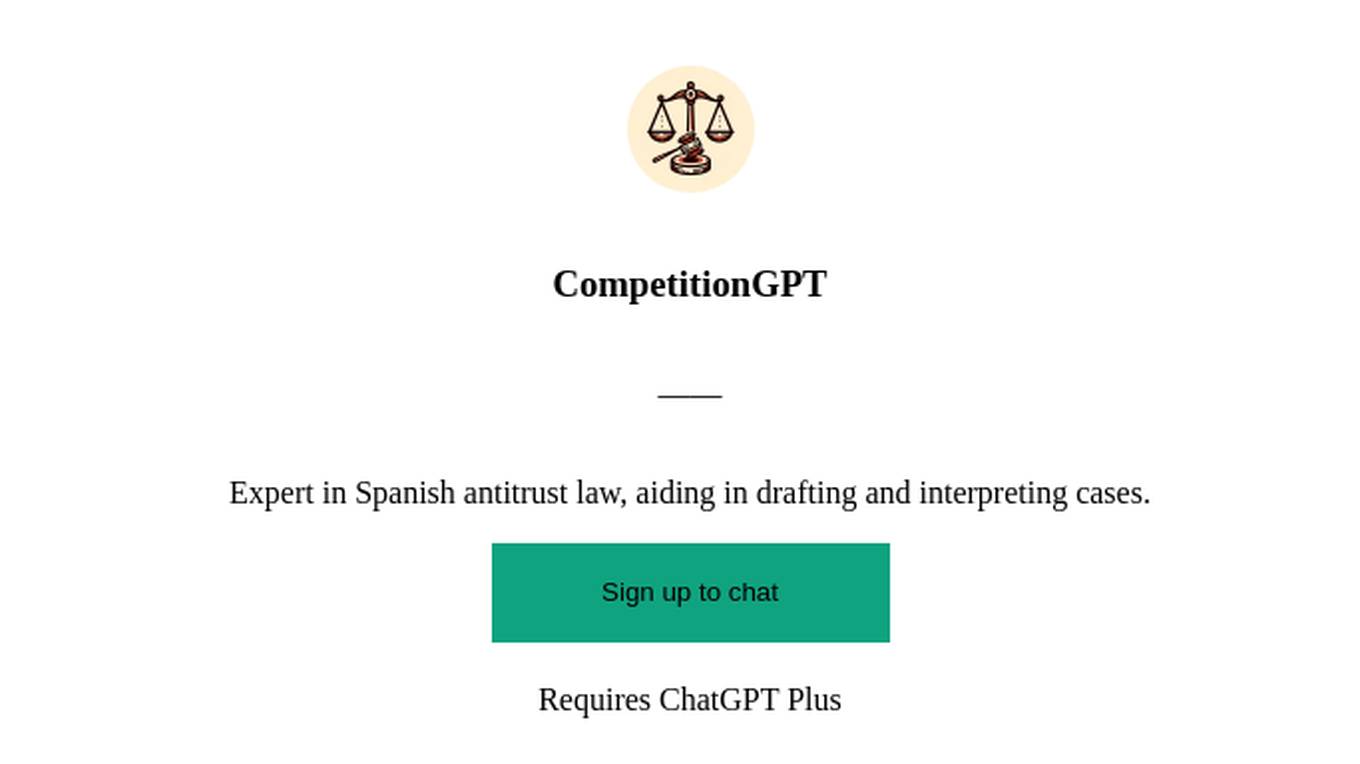
CompetitionGPT
Expert in Spanish antitrust law, aiding in drafting and interpreting cases.

